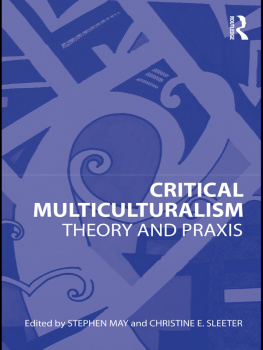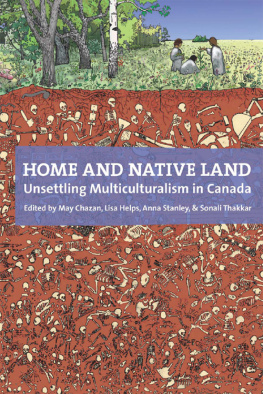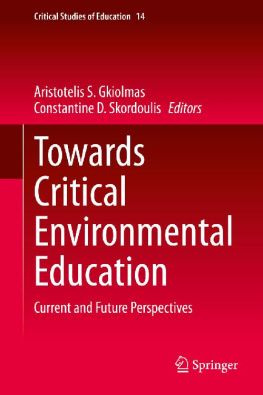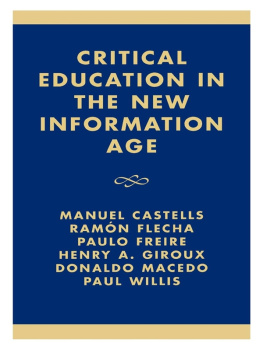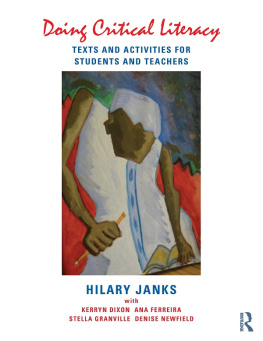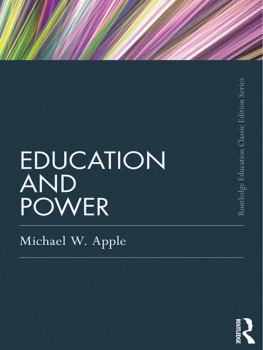Critical Multiculturalism
Critical multiculturalism has emerged over the last decade as a direct challenge to liberal or benevolent forms of multicultural education. By integrating and advancing various critical theoretical threads such as antiracist education, critical race theory, and critical pedagogy, critical multiculturalism has offered a fuller analysis of oppression and the institutionalization of unequal power relations in education. But what do these powerful theories really mean for classroom practice and specific disciplines?
Edited by two leading authorities on multicultural education, Critical Multiculturalism: Theory and Praxis brings together international scholars of critical multiculturalism to directly and illustratively address what a transformed critical multicultural approach to education might mean for teacher education and classroom practice. Providing both contextual background and curriculum specific subject coverage ranging from language arts and mathematics to science and technology, each chapter shows how critical multiculturalism relates to praxis. As a watershed in the further development of critical multicultural approaches to education, this timely collection will be required reading for all scholars, educators, and practitioners of multicultural education.
Stephen May is Professor of Education in the School of Critical Studies in Education, Faculty of Education, University of Auckland, New Zealand.
Christine E. Sleeter is Professor Emerita in the College of Professional Studies at California State University, Monterey Bay.
Critical Multiculturalism
Theory and Praxis
Edited by
Stephen May
Christine E. Sleeter

NEW YORK AND LONDON
The cover picture is from an acrylic painting Te Kaha o te Mahi by Donn Ratana (copyright
D. K. Ratana, 2009). The painting depicts the mangopare (hammer head shark) moving around
the different currents of the ocean. It emphasizes blazing trails, new adventures and different
pathways.
First published 2010
by Routledge
270 Madison Avenue, New York, NY 10016
Simultaneously published in the UK
by Routledge
2 Park Square, Milton Park, Abingdon, Oxon OX14 4RN
Routledge is an imprint of the Taylor & Francis Group, an informa business
This edition published in the Taylor & Francis e-Library, 2010.
To purchase your own copy of this or any of Taylor & Francis or Routledges collection of thousands of eBooks please go to www.eBookstore.tandf.co.uk.
2010 Taylor & Francis
All rights reserved. No part of this book may be reprinted or reproduced or utilized in any form
or by any electronic, mechanical, or other means, now known or hereafter invented, including
photocopying and recording, or in any information storage or retrieval system, without
permission in writing from the publishers.
Trademark Notice: Product or corporate names may be trademarks or registered trademarks,
and are used only for identification and explanation without intent to infringe.
Library of Congress Cataloging-in-Publication Data
Critical multiculturalism: theory and praxis/editors, Stephen May, Christine E. Sleeter.
p. cm.
Includes bibliographical references and index.
1. Multicultural education. 2. Multiculturalism. 3. Critical pedagogy. I. May, Stephen, 1962 II.
Sleeter, Christine E., 1948
LC1099.C746 2010
370.117dc22 2009050288
ISBN 0-203-85805-0 Master e-book ISBN
ISBN10: 0415802849 (hbk)
ISBN10: 0415802857 (pbk)
ISBN10: 0203858050 (ebk)
ISBN13: 9780415802840 (hbk)
ISBN13: 9780415802857 (pbk)
ISBN13: 9780203858059 (ebk)
Contents
STEPHEN MAY AND CHRISTINE E. SLEETER
|
MICHAEL VAVRUS
|
VIRGINIA LEA
|
LILIA I. BARTOLOM
|
RUSSELL BISHOP
|
JEANETTE RHEDDING-JONES
|
TERRY LOCKE
|
RYUKO KUBOTA
|
SANJAY SHARMA
|
ERIC GUTSTEIN
|
JAMES C. McSHAY
|
GEORGINA M. STEWART
|
JILL EWING FLYNN
|
KATIE FITZPATRICK
|
MARY STONE HANLEY
|
CHARLENE A. MORTON
|
Introduction
Critical Multiculturalism: Theory and Praxis
STEPHEN MAY AND CHRISTINE E. SLEETER
A little more than a decade ago, it seemed that multicultural education would become common practice in schools. After all, advocacy for it had by that time in the 1990sa history of 3040 years in Western countries such as the United States, Canada, the United Kingdom, New Zealand, and Australia. Its core tenets seemed both obvious and unproblematicat least, that is, with respect to its most popular variant, liberal multiculturalism. What could be wrong, surely, with recognizing, respecting, and including cultural differences as the basis for teaching and learning, as liberal multiculturalism averred? Wasnt fostering intercultural respect and engagement among both students and teachers a worthy and important goal? Why couldnt we all just get along better, recognizing and celebrating our ethnic and cultural differences in the classroom, and beyond?
You might well ask these questionssince in the last decade, we have seen a major retrenchment of the principles of multiculturalism, in both education and wider public policy. In the United States, a rapidly growing standards and testing movement has replaced earlier attention to racial and ethnic diversity. Beginnings of this shift were visible in the report A Nation at Risk (National Commission on Excellence in Education, 1983), which warned that U.S. international preeminence was being eroded by the mediocre performance of its educational institutions. A system of setting standards and measuring student performance based on them was cemented by passage of the No Child Left Behind Act in 2001, leading to pressure to raise test scores, which has turned the work of teachers into that of standardized curriculum technicians and test managers (Valli, Croninger, & Chambliss, 2008). In this context, despite emphasis on efforts to close the achievement gap, multicultural education has all but disappeared.
This move towards a standardized curriculum was also framed within a wider, growing skepticism of the merits of diversity per se, particularly, after 9/11. For many, ethnic, linguistic, and cultural diversity are no longer something to be celebrated, but rather feared. Bellicose U.S. critics of multiculturalism, such as Barry (2000) and Huntingdon (2005), argue that ongoing ethnic, cultural, linguistic, and religious differences are simply no longer to be tolerated if nation-states are to continue to make their way safely in the world. And the role of multicultural education is often at the center of such attacks.
As a result of such visceral critiques of multiculturalism, and their prominence in political and media commentary, wider multicultural policies and practices that seemed well accepted have simply unraveled. For example, decades of affirmative action and related civil rights advances for African Americans have been dismantled, most notably in relation to access to higher education (Kellough, 2006). The provision of bilingual education, particularly for Latino/a Americans, has also been severely circumscribed, and in some U.S. states actually proscribed, by legislation promoting a monolingual English language philosophy as a prerequisite for U.S. citizenship (May, 2008). Meanwhile, across Europe, multiculturalism as public policy is in apparent full retreat, as European states increasingly assert that minority groups integrate or accept dominant social, cultural linguistic and (especially) religious mores as the price of ongoing citizenship (Modood, 2007). The obvious target here, as Modood argues, are Muslims and Islam (see also Rhedding-Jones, this volume), who have regularly been both homogenized and demonized in the post-9/11 environment, a position represented most clearly in the former U.S. President George W. Bushs irresponsible and reductionist phrase axis of evil.

